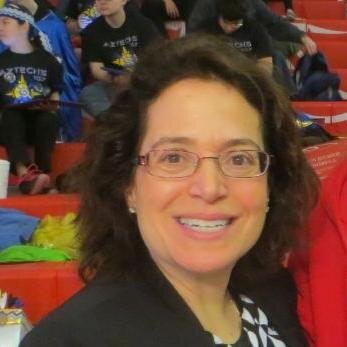Veterans from Craven CC Win Gold at SkillsUSA Engineering Technology – Design
SkillsUSA is the number one workforce development organization for students, empowering them to become skilled professionals, career-ready leaders and responsible community members. Through a series of local, state and national competitions, the most highly skilled career and technical education students gathered at SkillsUSA’s National Leadership & Skills Conference in June. The event featured more than 6,000 state champions from across the United States competing head-to-head in 115 skilled and leadership competitions.

Representing North Carolina from Craven Community College, US Military Veterans (in white), David Starnes (Army), Spencer Higgs (Marine Corps), and Robert Duren (Marine Corps) competed in the Engineering Technology – Design category, achieving first place and receiving a Gold medal.
The team is not new to technical competition or pressure. Last year Spenser achieved 1st place in North Carolina for Technical Drafting (an individual competition) and David was second. Craven Community College asked Spencer and David not to compete again in order to give other students a chance.
Under the direction of their Drafting instructor, Jeff Brown and advisor Ricky Meadows, Dean of Career Programs, David, Spencer and Robert selected Engineering Technology – Design. In just 9 weeks, they reviewed the rules, brainstormed, created designs, tested with occupational therapists, and developed multiple prototypes.

Inspired by their fellow service men and women, the team designed and developed a one-hand gaming controller in SOLIDWORKS. I was fortunate to interview all three veterans about their design and experiences.
My notes are from David Starnes (Army), Spencer Higgs (Marine Corps), and Robert Duren (Marine Corps):
The initial idea for our project was to create a video game controller that could be used with one hand. As a group of veterans, we realized that most veterans are also gamers. Many of our brothers-in-arms had lost arms or hands during the wars in Iraq and Afghanistan. There were no adequate products on the market to facilitate gaming with only one hand. We wanted to help give back some joy to our fellow veterans who had sacrificed more than most. The first step was to create a proof of concept, and solder new wires and buttons to and existing game controller board to see if our idea could work. Spencer built the first proof-of-concept, proving that we could use an existing video game controller circuit board to create custom button locations, but the controller was uncomfortable to use and hard to reach all the buttons.

We used a pistol grip handle and modeling clay to get a basic idea for a comfortable handle and used a 3D scanner to import the shape into SOLIDWORKS. To make the handle ambidextrous we designed rotatable interlocking button cylinders that could be individually set to the users preferred position. We were using the basic handle model to design different controllers for three gaming consoles when I had the idea of a modular design. If you could attach the circuit board and power supply to the base, like a Craftsman impact driver, and separate button layouts at the top, then one handle could be used to control almost anything. We designed a cartridge to hold the circuit boards that could slide in and attach to the handle base and separate button configurations to attach at the top.

We had to measure and then create 3D models in SOLIDWORKS for each component of the controller to figure out the best layout and make sure everything fit together. By this time we were realizing the potential of our new product, so with the future in mind we created a slightly different design for the handle with the back removed, making injection molding possible and giving better access for wiring.

We took our prototype to the Occupational Therapy team at Carolina East Rehabilitation Hospital to get feedback from professionals who worked with disabled persons. The most important feedback we received from them was that it might be difficult for a person with one hand to manage the different attachments, so we started working on a docking system. We used the subtractive modeling feature in SOLIDWORKS to “subtract” the shape of the board cartridges and top controls from a dock that could be mounted to a desk or table, making one-handed use of all the attachments easy and comfortable.

I was truly impressed with the drawings and documentation the team shared. The team also created a carrying case for the game controller.

David (Mechanical Engineering/CAD major), Spencer (AAS CAD & working on AAS in CAM), and Robert (CAM major) also have a US Patent pending.
David stated, “SOLIDWORKS hands down is the one CAD tool that Spencer and I prefer. It is intuitive, most comfortable. We can do almost anything.”
Although I scheduled a 1/2 hour for the interview, over an hour flew by. I was so inspired by what these veterans have accomplished. I asked for some words of advice to others and how they have connected their experience in the military to their current education.
From Robert, “I was working on aircraft in the military. Now I can work with my hands, learning about the manufacturing industry.” At Craven CC, Robert is in the CAM program.
From Spencer, “The Marine Corps allowed me to afford college, take a different career path.” With a degree in CAD and a future degree in Manufacturing, Spencer hopes to help disabled veterans in his community.
From David, “As one who struggled with Attention-deficit/hyperactivity disorder (ADHD), go to a community college, Craven has given me a new challenge everyday.”
Thank you David, Spencer and Robert for sharing with the SOLIDWORKS community.
For Veterans
SOLIDWORKS supports US and Canadian veterans by providing software, online training and community support through our Military Veterans Program.
Design well, Marie




